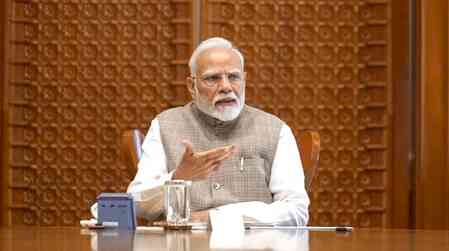70% of global family businesses do not have a formal succession plan
Author(s): City Air NewsHyderabad, November 6,2019: With people living longer, increasing demographics and societal changes, family businesses in different parts of the world are exposed to new challenges which make their traditional methods...

Hyderabad, November 6,2019: With people living longer, increasing demographics and societal changes, family businesses in different parts of the world are exposed to new challenges which make their traditional methods of succession and governance no longer appropriate.
Globally, 48 universities conducted a survey across 33 countries, covering over 1,800 family businesses, under the umbrella of STEP (Successful Transgenerational Entrepreneurship Practices) Project, to reflect upon the changing demographics and how they impact the family business governance, succession, entrepreneurial orientation and performance. Thomas Schmidheiny Centre for Family Enterprise, Indian School of Business being the only member from India conducted the survey in India.
The report “The impact of changing demographics on family business succession planning and governance” is co-authored by Andrea Calabrò, (STEP Global Academic Director & IPAG Family Business Institute, IPAG Business School) and Alfredo Valentino (STEP Global Research Champion & ESCE International Business School) and sponsored by the KPMG Enterprise Center of Excellence for Family Business. The report finds that more than half of global family CEOs do not have a formal retirement plan and 70% of global family businesses do not have a formal succession plan. However, Millennial CEOs are ready to take over.
“Many of the Indian family businesses were incorporated in the late 1980s and early 1990s when economic reforms were introduced. Most of these business founders find themselves at the brink of retirement with no planned succession. However, the challenges of retirement and succession are not limited to India. The STEP 2019 Global Family Business Survey shows that family businesses in different parts of the world are also exposed to these challenges”, said Dr. Nupur Pavan Bang, Associate Director, Thomas Schmidheiny Centre for Family Enterprise, Indian School of Business.
She further adds that “the number of family businesses surveyed in India was 53 and the findings of the global survey are very relevant for all family businesses in India too. The changing demographics, differences in generational outlook and other societal changes are rendering the traditional methods of retirement, succession and governance redundant. Proactively planning to tackle the challenges of succession, retirement and governance, while keeping the changing society and generational outlook in mind, will go a long way in perpetuating family businesses”


 cityairnews
cityairnews 










